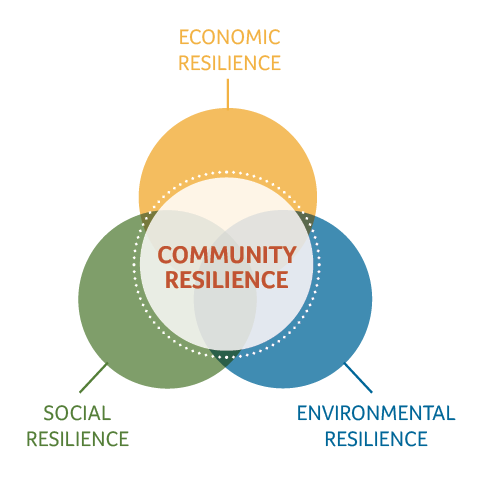What is Community Resilience?
How communities can remain resilient while facing combined challenges of environmental degradation, fossil fuel dependence, economic inequality, and social injustice

For more than thirty years, the world community has tried to resolve the combined challenges of environmental degradation, fossil fuel dependence, economic inequality, and persistent social injustice, largely under the banner of internationally brokered “sustainable development.” It is clear today that the pace of these global trends has not been slowed, let alone stopped or reversed. The scale of these trends has grown, and their effects have become so widespread that they now threaten the stability—in some cases, even the existence—of communities around the world. The global sustainability challenges of the past have become the local resilience crises of today. Resilience is the ability of a system—like a family, a country, or Earth’s biosphere—to cope with short-term disruptions and adapt to long-term changes without losing its essential character. A crisis is an unstable state of affairs in which decisive change is both necessary and inevitable. We depend on the resilience of all the systems that support us for life and well-being; if these systems falter, we suffer. Today we face four major crises—environmental, energy, economic, and equity (the “E4 crises”) —that threaten to overwhelm the resilience of the systems we care about, particularly at the local level. On the bright side, there is now more clarity than in the past about how to understand these crises and most effectively deal with them.
Learn more at Resilience.org